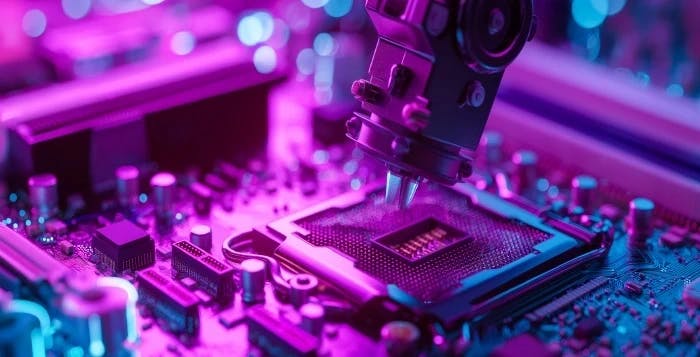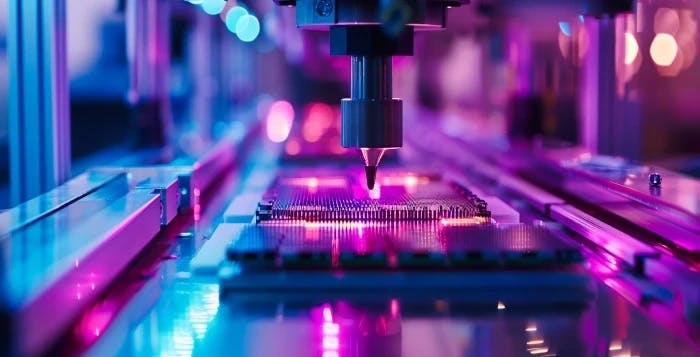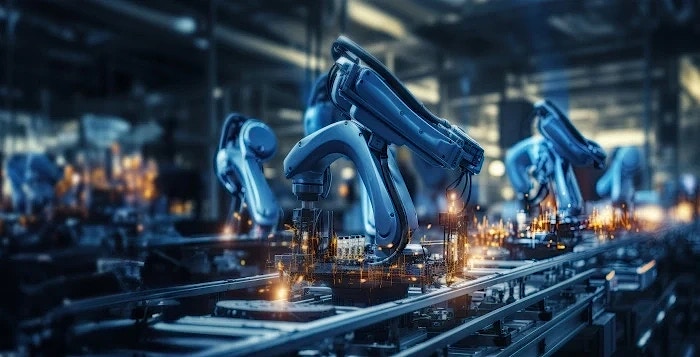The past few years have been challenging for the manufacturing sector, from the pandemic to inflation and supply chain disruption. These rapidly changing economic conditions illustrate the need to build resilience, improve business agility and future-proof technology solutions. Industry 4.0, which encompasses the digitization of manufacturing, promises these capabilities.
Manufacturing organizations today are focused on enhancing decision-making within operations, driving higher operational efficiency levels and supporting digital customer engagement applications. Manufacturers need smart systems beyond dashboards and alerts to achieve these goals and move towards autonomy. According to IDC, GenAI will play a significant role in creating these smart systems over the next 6 to 18 months. However, while GenAI holds tremendous potential for the industry, it also comes with challenges and risks.
Four key capabilities will enable manufacturers to overcome the difficulties ahead of them. HCLTech and Microsoft provide solutions that allow organizations to succeed in each area.
- Digital transformation
- Intelligent automation
- Resilient supply chain
- Workforce transformation
Digital transformation
Digitally connected, intelligent manufacturing, often powered by AI and GenAI, is far more responsive, flexible and resilient than traditional systems, especially regarding data quality. Manual systems are too slow, inaccurate and rigid, but digital transformation requires more than digitalization. Systems must also connect within a holistic framework so that all the components of Industry 4.0 work together synchronously to provide value.
Many factories employ edge and on-prem solutions that require substantial effort to standardize and update. To achieve digital transformation, manufacturers should move as many systems to the cloud as possible (without sacrificing performance where needed) to drive standardization and facilitate interconnection. This standardization simplifies management and helps reduce the risk of misconfigurations that can cause security vulnerabilities. In addition, sustainable transformation empowers IT to manage these devices at scale securely.
Industry NeXT by HCLTech builds on the Industry 4.0 foundation, providing a blend of products and services that leverage HCLTech’s suite of prebuilt solutions, frameworks and deployable products. A proficient and experienced team supports Industry NeXT and ensures a comprehensive approach for swiftly implementing digital transformation initiatives. HCLTech’s partnership with Microsoft enables manufacturers to confidently leverage Microsoft Cloud for Manufacturing and the Microsoft Azure OpenAI Service. All of this comes with the support and expert guidance of HCLTech, which established a Microsoft Cloud Generative AI Center of Excellence last year.
“We have systematically invested in general AI labs across the globe, scaling up our GenAI centers of excellence and creating frameworks that can really scale and sustain GenAI,” said Shankar Gopalkrishnan, EVP at HCLTech. “And our strong partnership with Microsoft enables us to collaboratively create solutions and accelerators to help our customers identify, pilot and scale various use cases within their value chain.”

Resilient supply chain
A resilient, agile supply chain is fundamental to manufacturing success. HCLTech enables real-time visibility and optimization of supply chain ecosystems by transforming linear communications into connected ecosystems. HCLTech’s Supply Chain Management practice helps organizations create a flexible, AI-powered cognitive supply chain; this can help ensure that factories have the raw materials and components necessary to meet customer demands, no matter what obstacles.
In addition, integrating additional data — such as logistics, weather and macroeconomic information— enables manufacturers to foresee disruption long before it occurs and take preventive action.
Capabilities include:
- Integrated business planning: A digital collaboration platform powered by analytics enhances sales and operations planning to enable accurate, cross-functional analysis
- Demand planning: AI-enabled forecasting helps predict product demand so manufacturers can deliver the right products at the right time
- Supply planning: Utilize supply chain operations and business strategy-driven demand prioritization to enable collaboration with suppliers and manage their performance effectively
- Warehouse management: Optimize operations to improve productivity, reduce costs and ensure timely order deliveries
- Transport management: Gain visibility into transportation operations to optimize logistics, ensure compliance and deliver products on time
- Procurement: Gain insights into marketplace dynamics, leverage influence and strategically manage global supply chain networks to ensure goods and services arrive on time

Intelligent automation
Manufacturers are no strangers to automation, but historically, it has been almost entirely mechanical. Industry 4.0 requires automation powered by connectedness and AI right from the start. This way, intelligent automation can make appropriate decisions based on local conditions.
HCLTech’s expertise and experience with intelligent automation enables manufacturers to improve efficiency vastly, unearth previously unseen opportunities and accelerate meaningful progress towards their business goals.
Enabling intelligent automation, however, requires a specialized environment. First, manufacturers must leverage the cloud, which provides resilience and immense scalability. HCLTech’s expertise and close partnership with Microsoft enables organizations to take full advantage of Microsoft Azure. For use cases that require low latency, HCLTech helps support hybrid cloud, which combines the resilience and scalability of the cloud with the fast response of on-premises and edge systems.
Workforce transformation
Labor challenges due to skill gaps and worker shortages push manufacturers to adopt automation to improve productivity. Automation can also be used for manual tasks, enabling workers to perform higher tasks.
Other transformational technologies include augmented reality (AR), such as Microsoft HoloLens, which provides visual, just-in-time information. This enables technicians to service machines without lengthy and expensive prior training. Metaverse technologies can also allow collaborative design and simulation to connect a global workforce and attract a younger workforce. However, implementing cutting-edge immersive technologies like Extended Reality (XR) can be daunting.
HCLTech's XTERN Service Delivery Platform (SDP) helps address any XR adoption challenges. This allows manufacturers to integrate XR seamlessly and effortlessly into business processes to accelerate widespread adoption at scale across the entire ecosystem.
Today’s manufacturers need better decision-making and improved operational efficiencies. Industry 4.0 can provide the necessary agility and resiliency to help organizations achieve these goals and weather any coming economic storms. HCLTech and Microsoft provide a blended, integrated offering of products and services to create an intelligent, integrated ecosystem.
For more information, visit https://www.hcltech.com/cloud/microsoft

